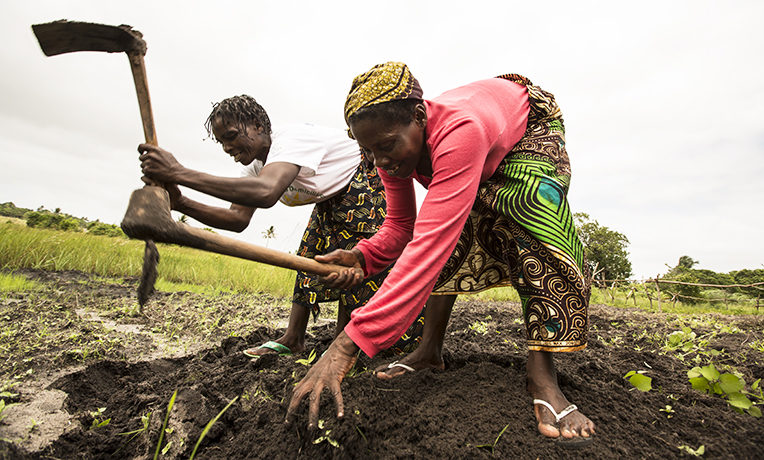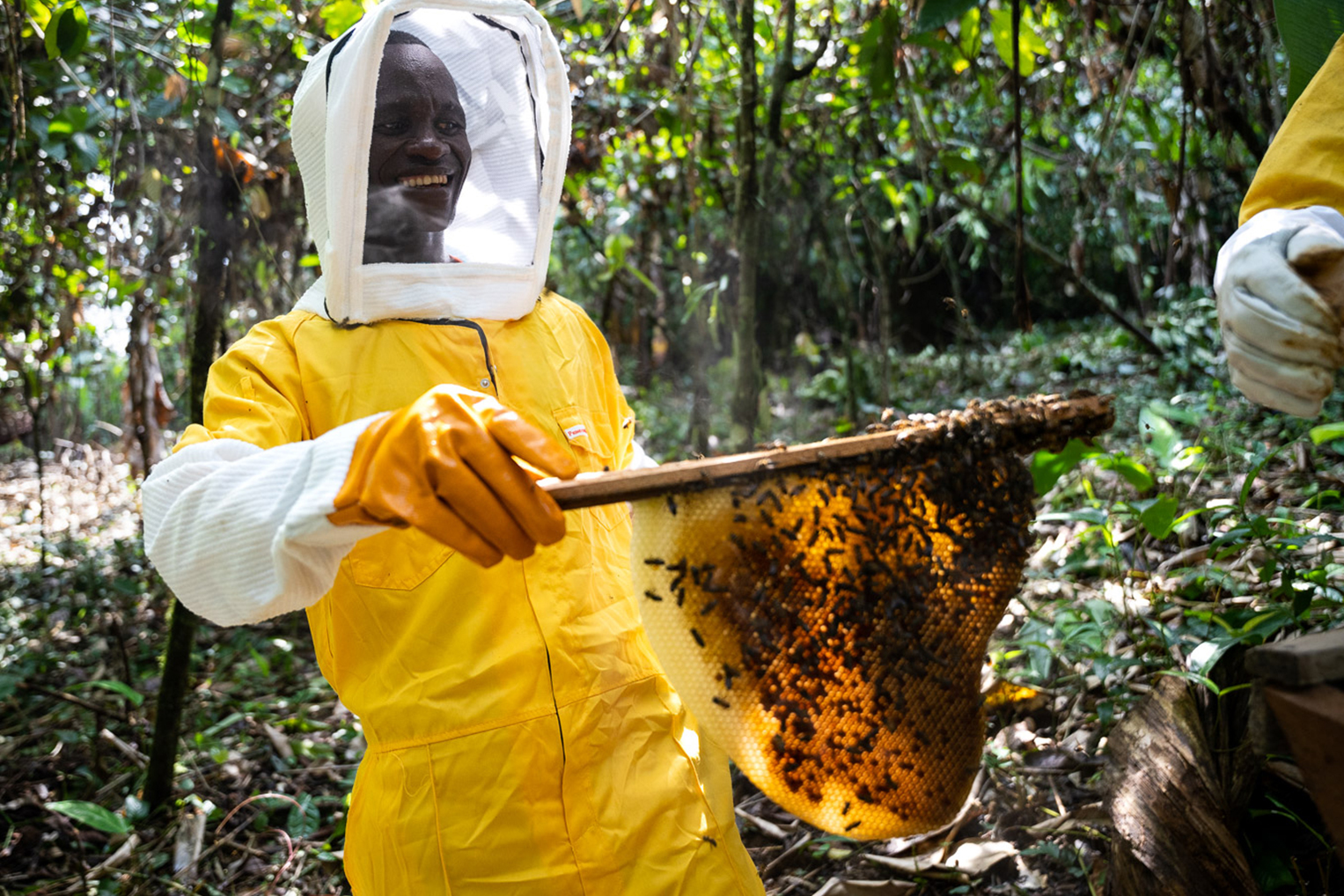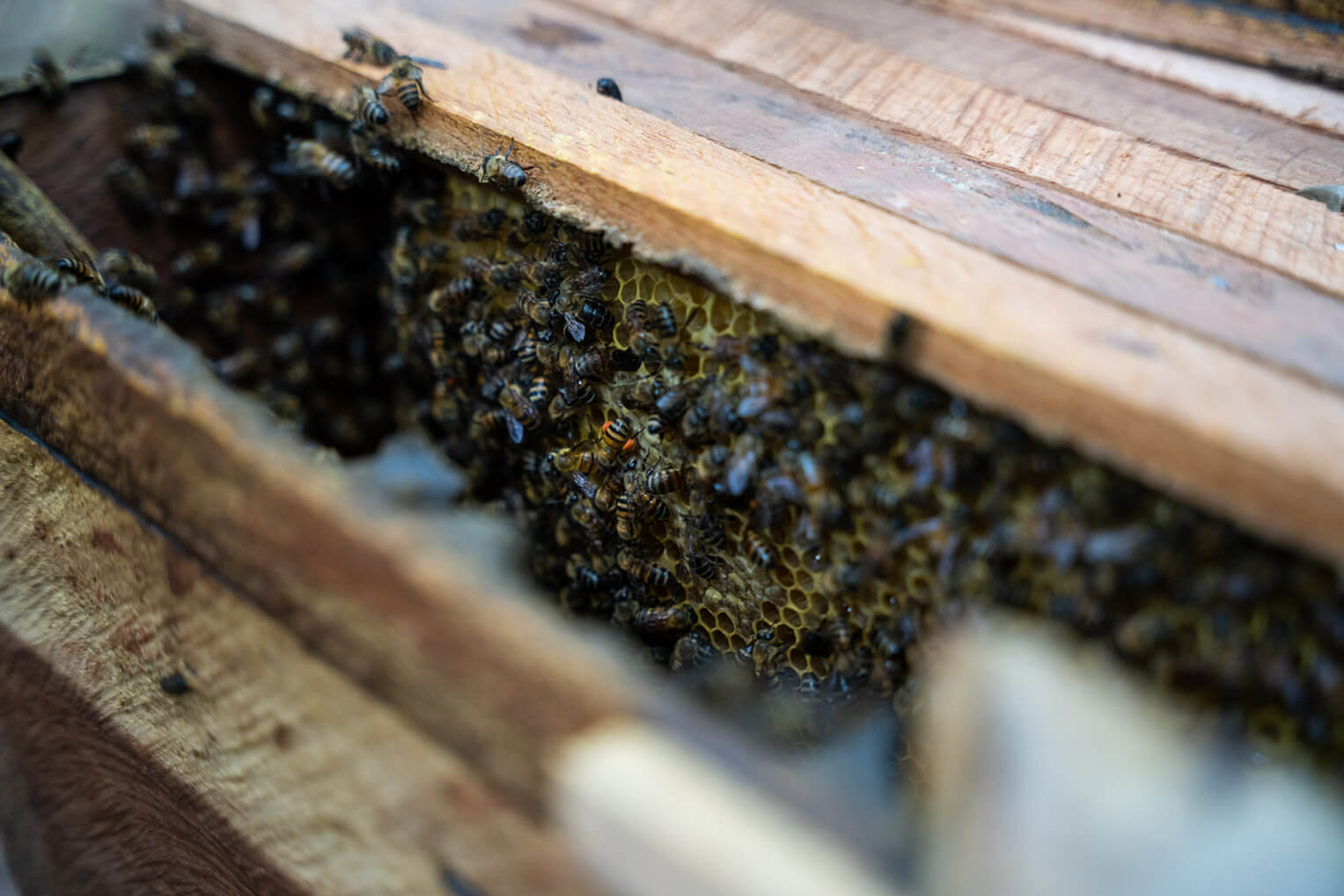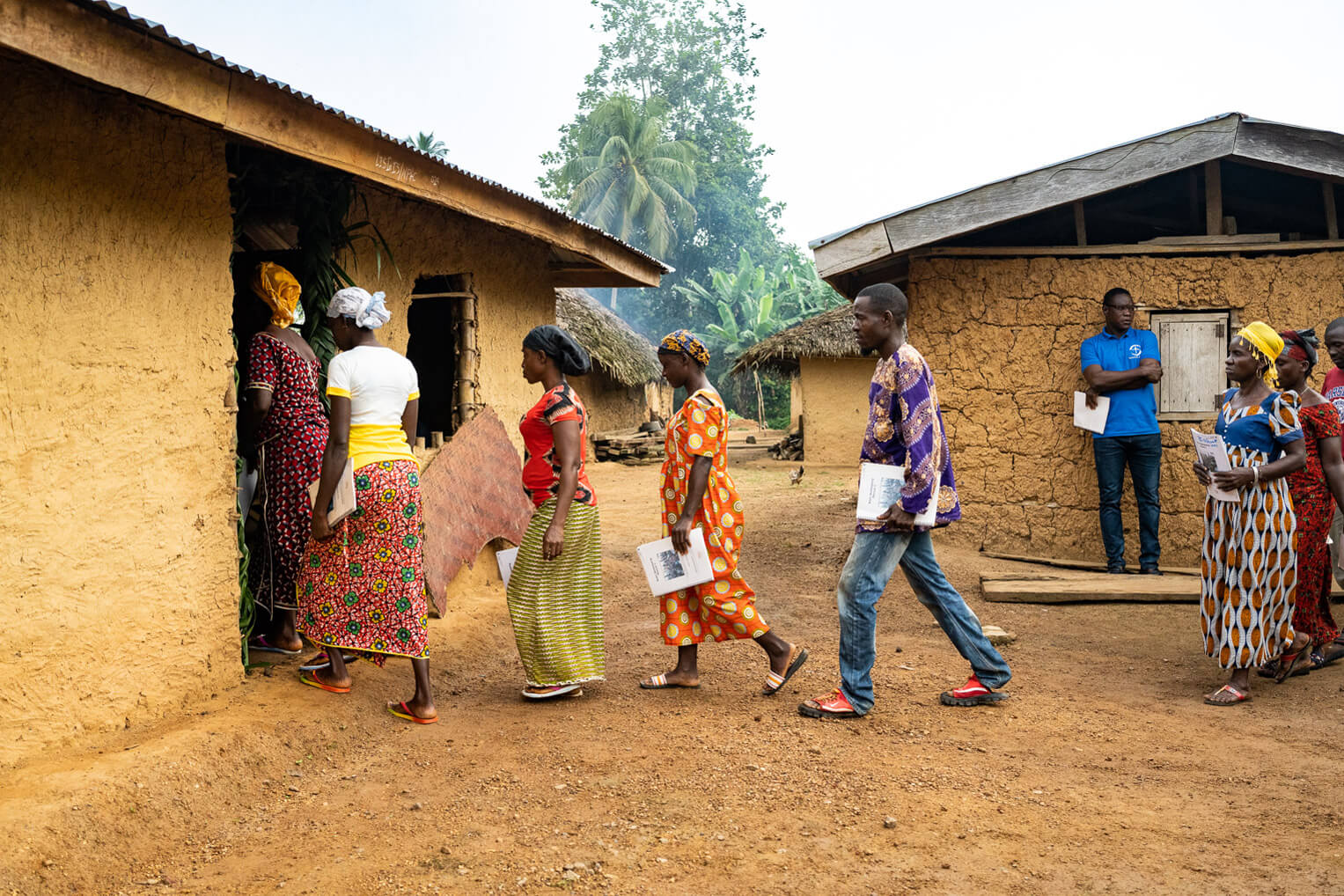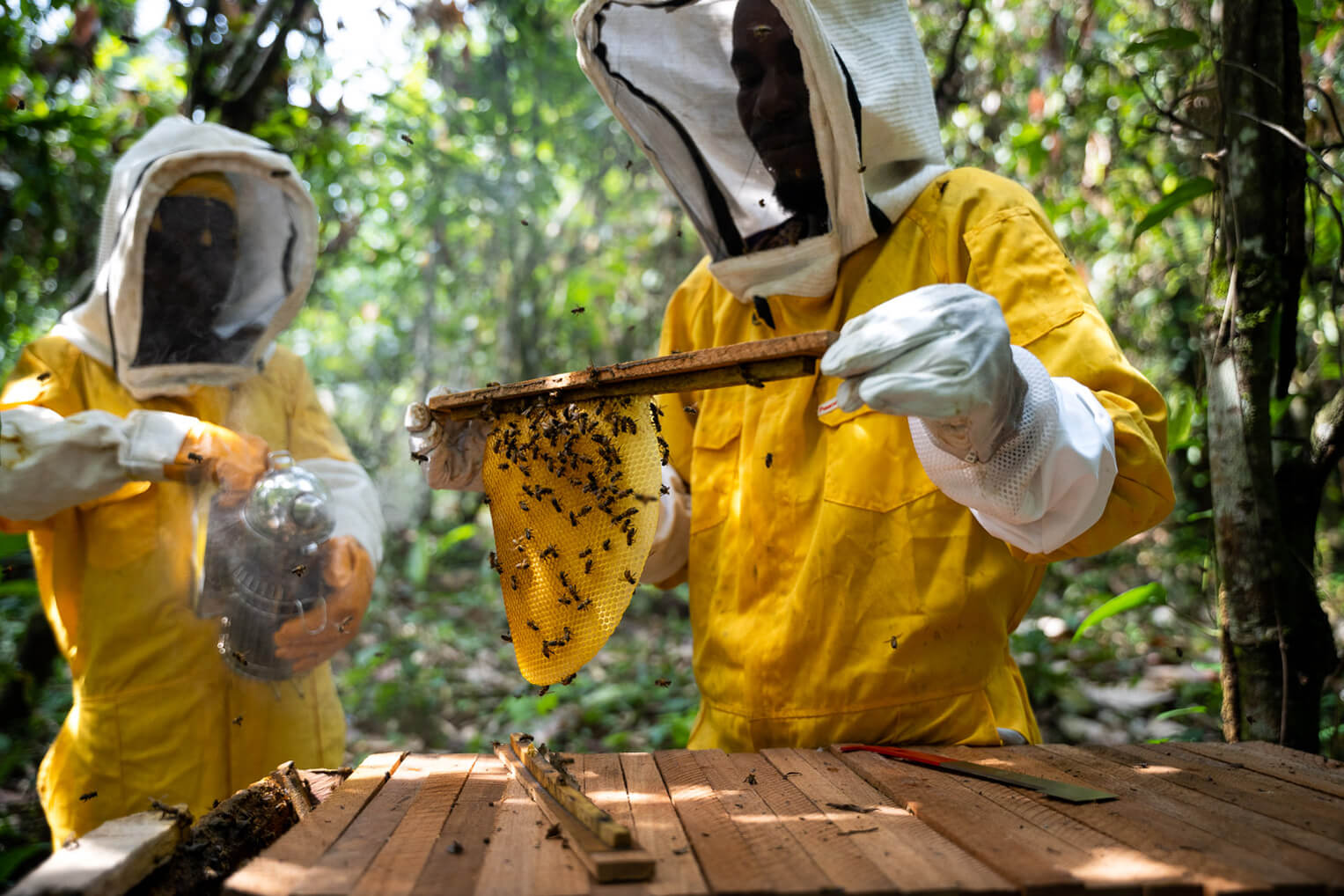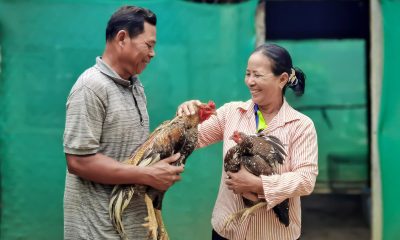God is at work changing hearts through Jesus Christ and growing livelihoods through beekeeping in remote Liberian villages.
A safe distance from her apiary, beekeeper Dorris Yengbeh places dried palm leaves into her smoker. She strikes a match and fans the bellows until smoke begins seeping thinly from the tin contraption. Now she dons her protective suit, a broad-brimmed hat with face, coverall, gloves, and rubber boots.
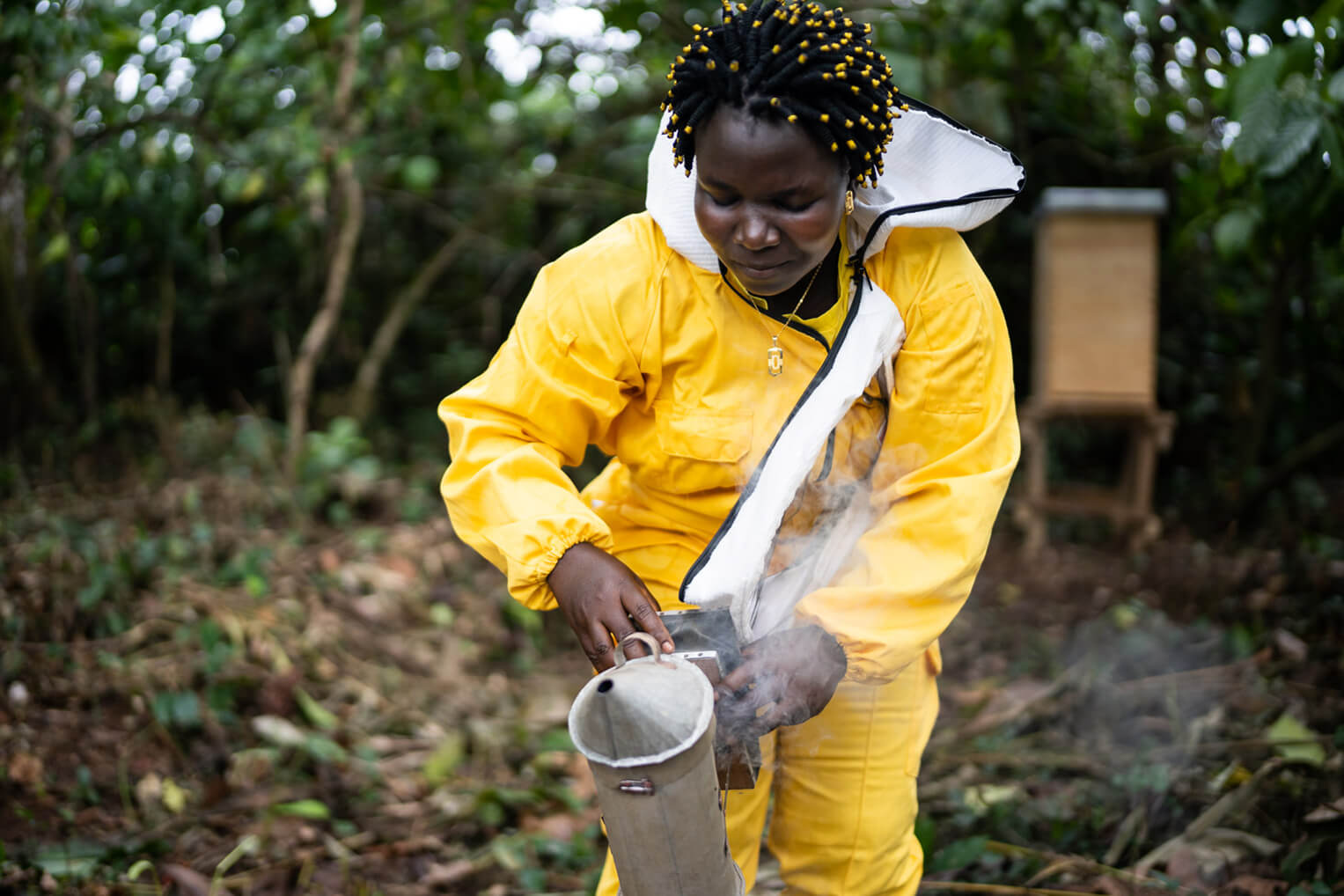
The smoker is key to maintaining a calm hive.
“You have to be gentle with the bees,” she says as she enters the shade of her apiary, a cluster of honeybee hives situated in a grove of cocoa, coffee, and palm trees. Only a few months into her new venture, she already has three active hives. “You have to enjoy the quiet like they do, and you need to approach them slowly.”
There used to be a feud between African honeybees and the residents of Honeyahun, a northern Liberian community that seems to have been named after what’s now become its most delicious export—honey.
As a little girl, Dorris was told to stay far away from the bees that she’s now learned to love, known to scientists as apis mellifera scutellata and by Hollywood as African Killer Bees.
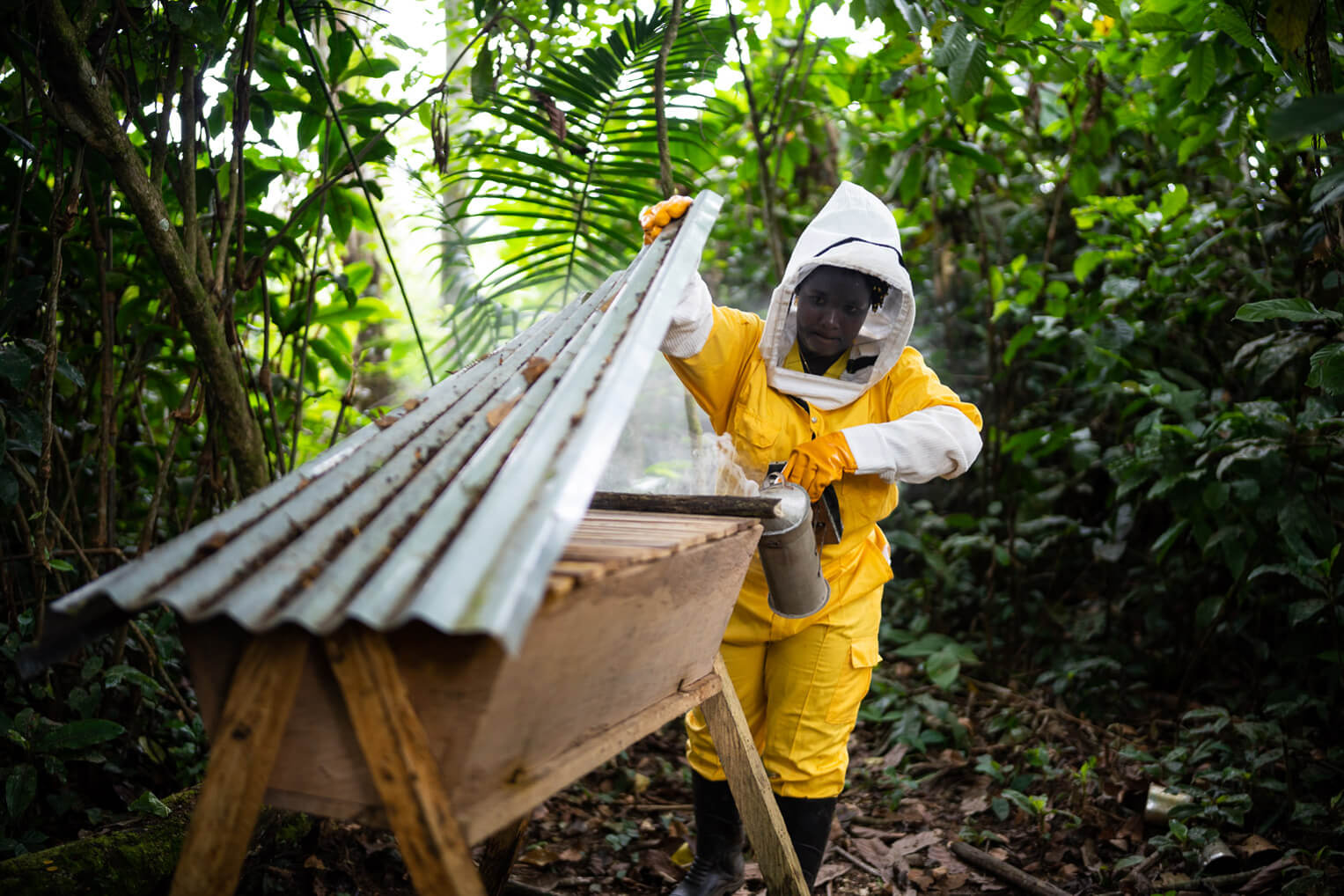
Dorris gently lifts off the cover and smokes the hive to calm the bees.
“I used to be afraid of them,” she says. “I used to have terrifying dreams of bees. We used to kill the bees.”
Their reputation comes from their instinct for attacking in unison when threatened. For this reason, many Liberian communities would steal the honey and light the hives on fire. But now Dorris sees the bees very differently.
“I praise God because now I come into the forest in the early morning and in the evening when it’s quiet. The bees like the quiet, too,” Dorris says. “I say ‘Thank you God for these bees and how they work together to make the honey.’ Through the program I’ve learned to see the bees as God’s creation and as a show of His creativity. All of these bees working together to make sweet, delicious honey.”
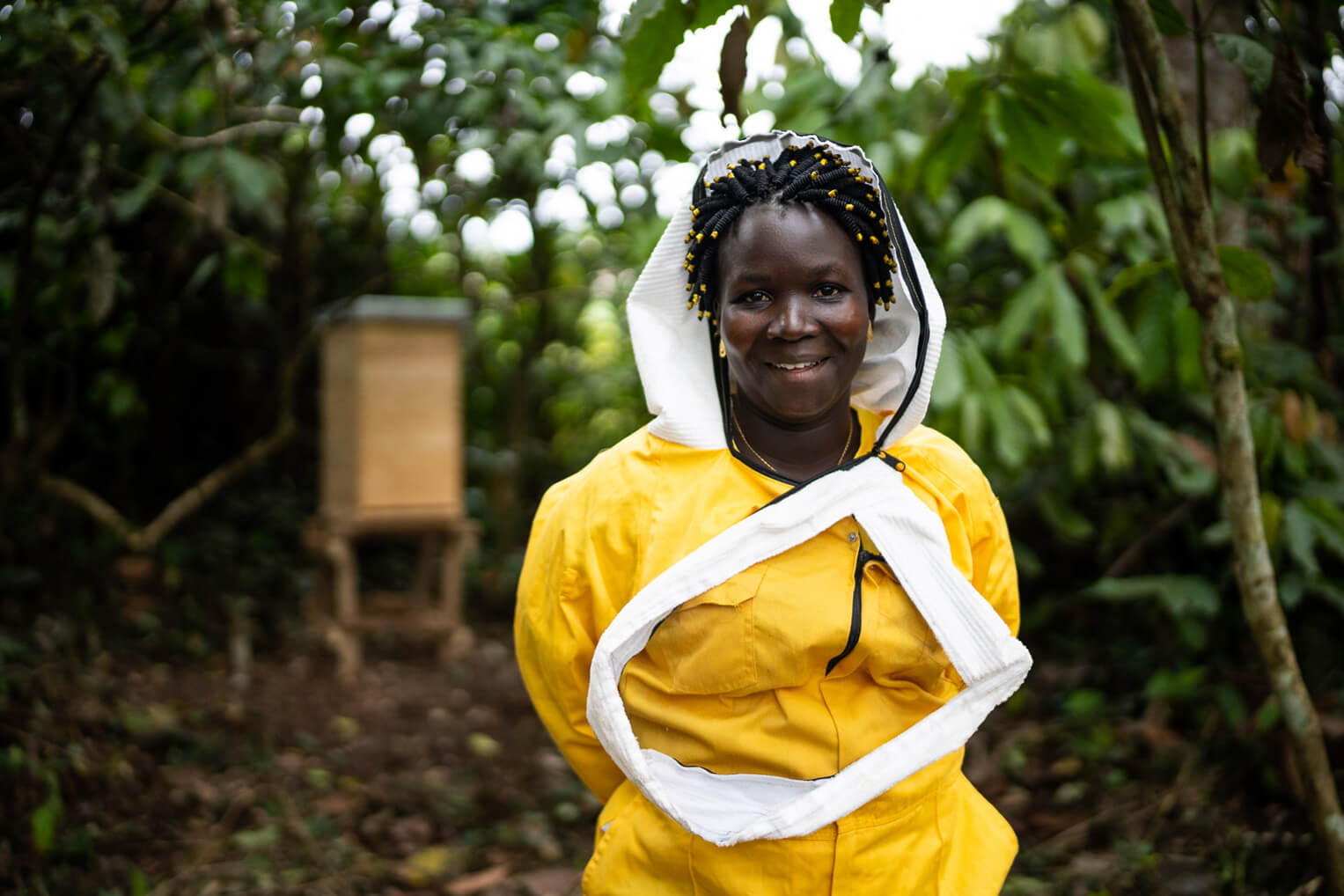
Dorris Yengbeh is our newest BEE project beekeeper in Honeyahun.
Many remote communities in Liberia, including Honeyahun, happen to have just the right combination of temperature, humidity, blossoms, and bees to harvest honey all year long. The hives around Honeyahun create a bright, golden honey that’s tinged with mocha, a flavorful accent created by the nectar from the region’s abundant cocoa and coffee flowers. The final product is a customer favorite!
Talk of New Hives and Eternal Hope
Dorris is one of dozens of Liberian beekeepers learning the trade through the Beekeeping for Economic Empowerment (BEE) program. The BEE program is a Samaritan’s Purse livelihoods project that teaches families new skills to harness the natural abundance in their communities, to increase their income, and to make a better life for their families.
Dorris, for instance, says that she wants to use her honey profits to help pay for school for her two young children and to ensure they have clothes and proper nutrition in their diets.
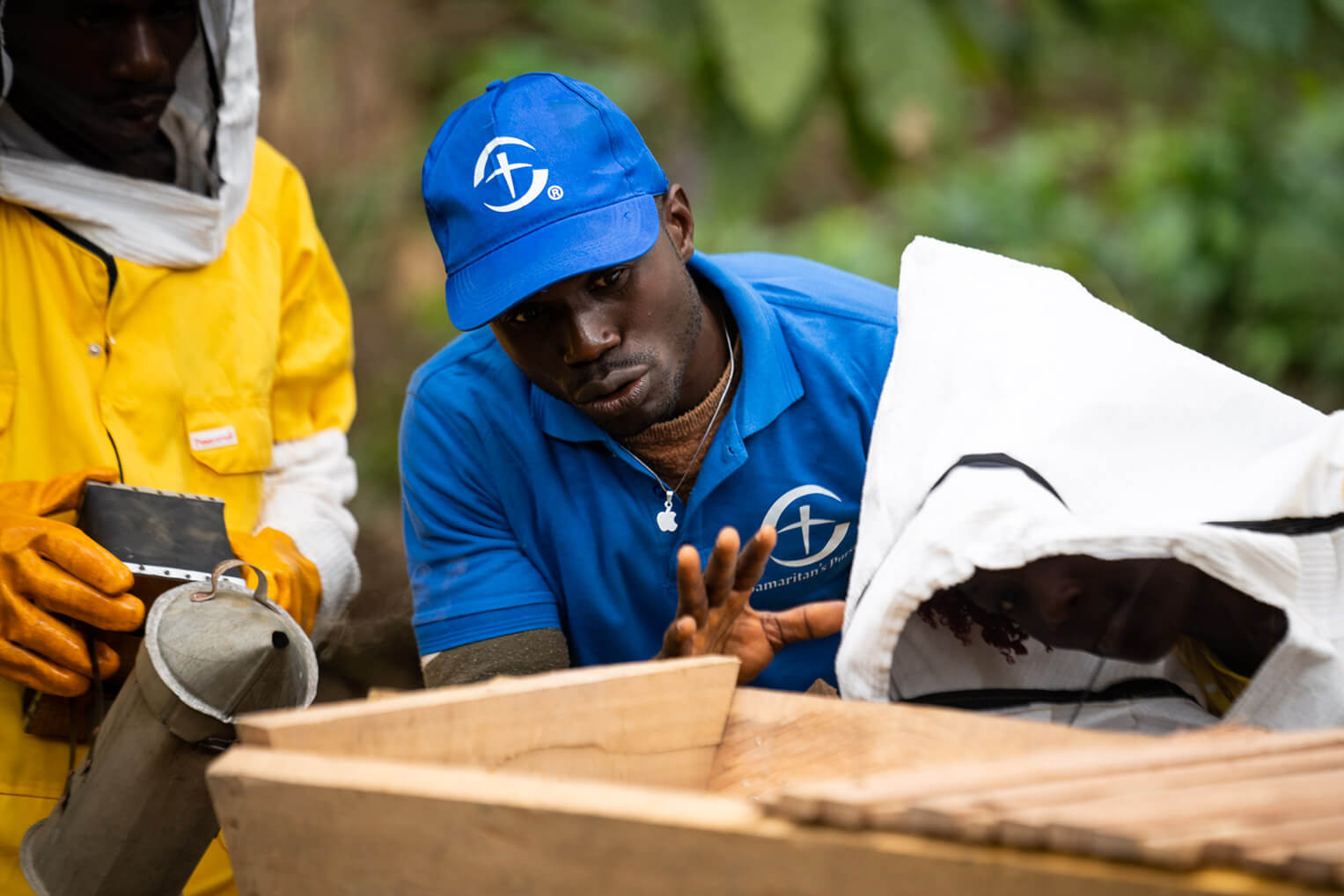
BEE program instructors are very knowledgeable about beekeeping, but also excited to share knowledge of Christ as well.
And each step throughout the program provides opportunities to point people to Jesus Christ. Evangelism and discipleship are key components to the course, and beekeeping provides a natural way to talk about God as students explore the wonders of His creation.
Dorris ponders those wonders.
“How do the bees know how to do this? To work together to protect the queen and the hive, to communicate with each other to build the hive,” she says. “I know how. Because God made them to do these things.”
Dorris said that the lessons and discussions about God have sparked a desire in her to live out her faith in Jesus Christ more intentionally.
“Before, I didn’t want to change, I didn’t want to share what I had. I was stingy. I wasn’t concerned about being a light to others,” Dorris said. “But I’m learning that as a Christian, others should be able to see a change in me. I don’t belong to myself. I belong to God. I should be a light for them so that people will see and come to God.”
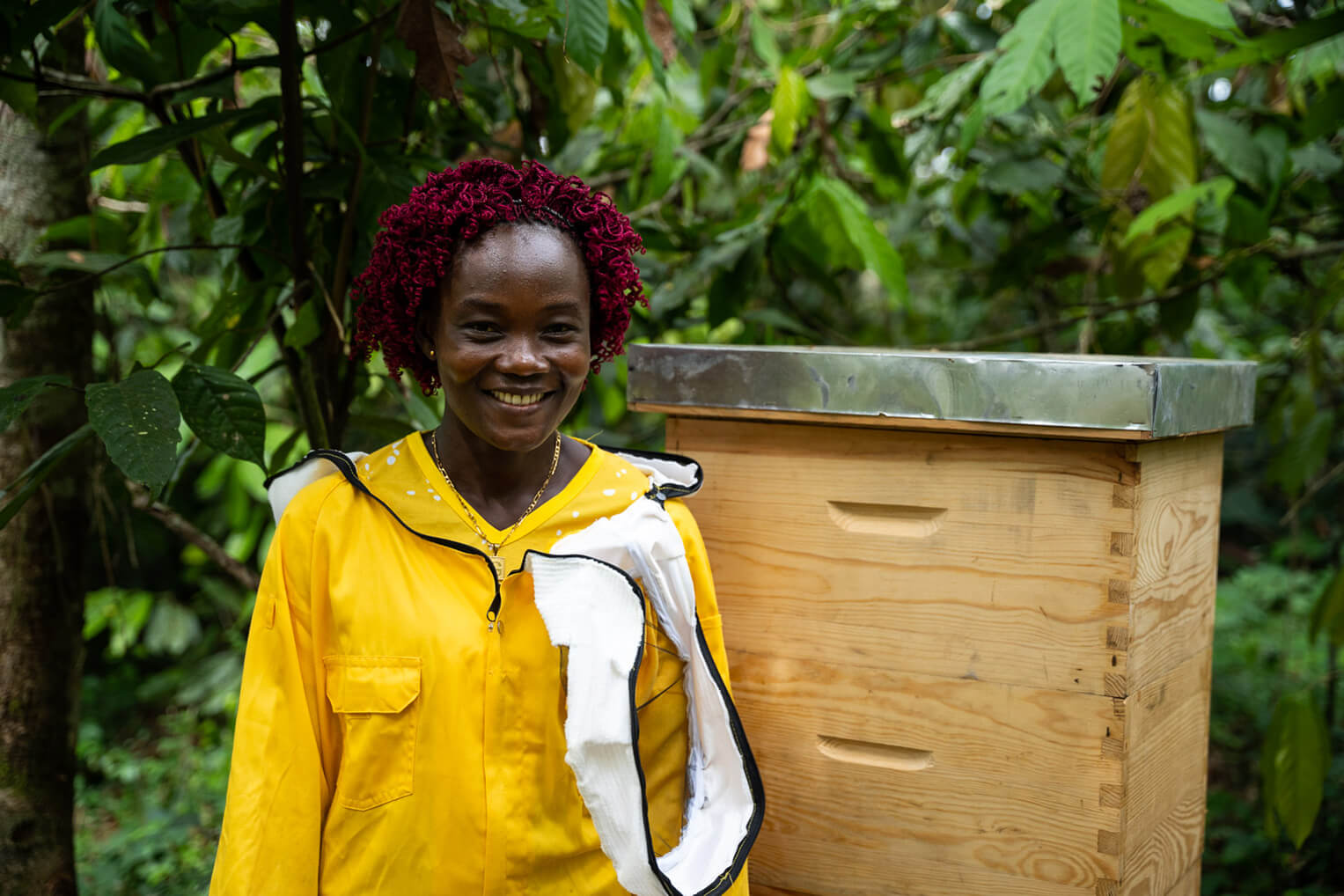
Hawa and her husband, Eric, praise God for how he’s providing new schools and sources of income.
In a few months, she hopes to have something to share from her hives. Right now though, the work require constant vigilance to keep beetles, ants, and other threats from destroying the young hives before they’re able to put up their own defense.
She cleans around the hives every day so that pests are not drawn to them. The legs of the structures supporting the hives are submerged in buckets of water so that invaders will have small motes to cross.
A Thousand Hives by God’s Grace
On a neighboring hill in Honeyahun, Dorris’ friend named Hawa, a fellow beekeeper, is also celebrating what God is doing in her family’s life. This is her first year of beekeeping alongside her husband, Eric.
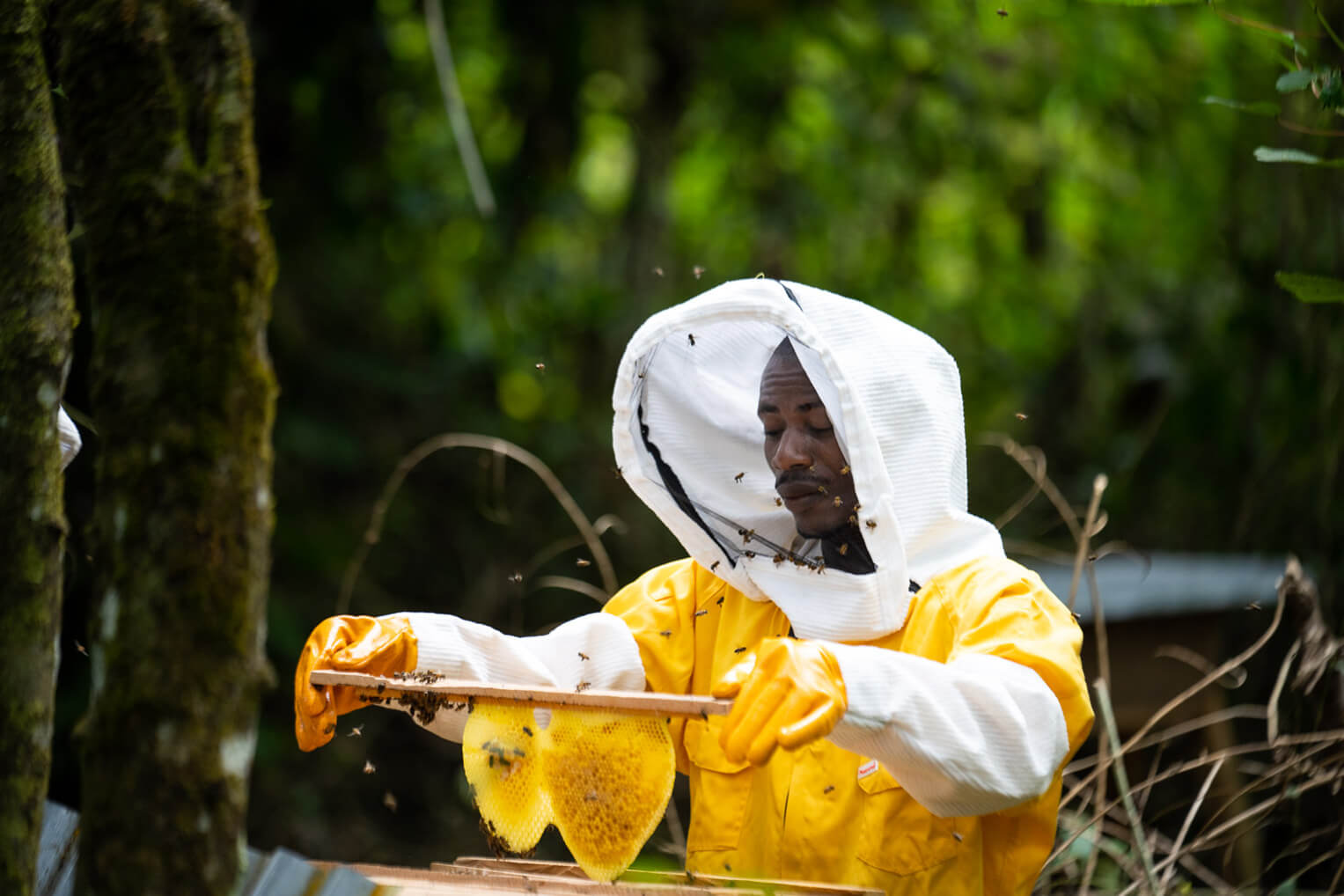
It’s still a surprise for new beekeepers when the bees become overly active.
“By the grace of God, we will have a thousand hives!” Hawa says. “I hope we can produce a lot of honey, and that many people in our community will benefit and have their own beehives.”
Hawa became a Christian two years ago during a local church event, and the work of the BEE program is helping her grow even closer to Jesus Christ and her walk with Him. It’s also given her opportunities to share the Gospel of Jesus Christ with people in her community and to point others to Him as she talks about beekeeping.
“He’s the creator of this universe, of the bees, and the great forest we see here,” Hawa says. “So when I’m in my apiary taking care of my bees, I think God is wonderful! He made a lot of wonderful things! Through beekeeping and through how I live, I want others to know how great God is!”
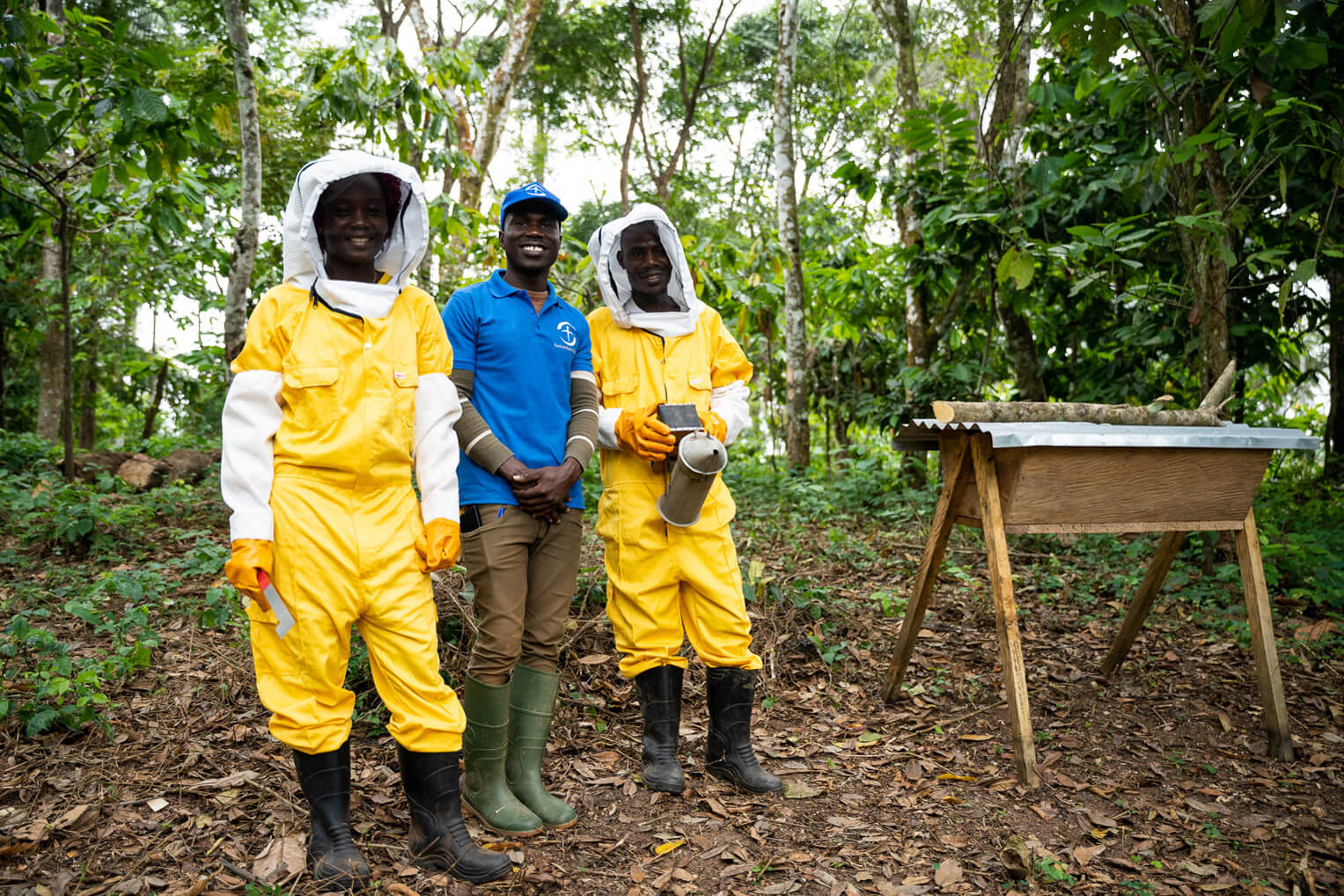
But Hawa and Eric are getting the hang of it.
